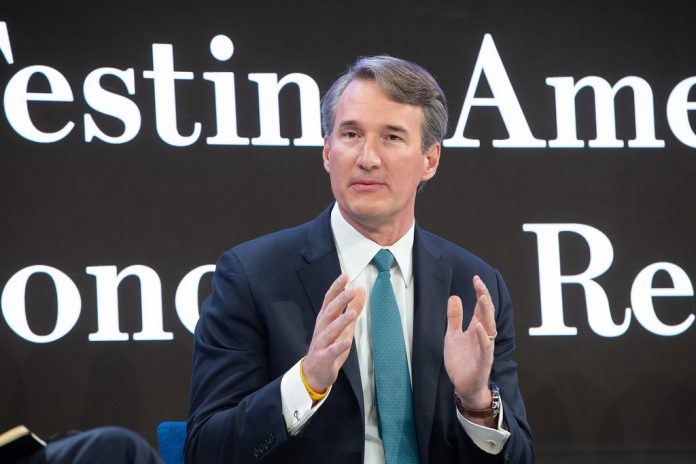(The Center Square) – Virginia recorded a budget surplus of nearly $2 billion at the close of the fiscal year, which Gov. Glenn Youngkin believes is a sign taxpayers are forced to give too much money to the government.
“While I am pleased that our additional revenue can be reinvested in Virginia, the Commonwealth’s general fund revenue surplus confirms that Virginians have been overtaxed for way too long,” Youngkin said in a statement.
“As inflation hits another 40-year high, I’m proud that our budget provides almost $4 billion in tax relief to Virginians, the largest tax relief in the Commonwealth’s history,” the governor added. “We have a lot of work left to do to recover from the pandemic, but Virginia’s economy is demonstrating promising economic and company growth with major companies such as Boeing, Raytheon, and LEGO moving their headquarters to Virginia.
The 2022 fiscal year ended with a surplus of $1.94 billion in the general fund. Revenue collections rose about 16.3%, which was nearly double the projected 8.5% growth.
Payroll withholding tax and sales tax revenue, which make up more than two-thirds of the state’s revenue, were $193.5 million above revenue, which was 1% above forecasts. Nonwithholding income tax payments were more than 30% above expectations and tax refunds were more than $280 less than expected, which positively affected the state’s bottom line. Corporate income tax collections rose by more than 30%, but were slightly less than the growth expectation.
“Fiscal 2022 was an extraordinary year for revenues and finished strong,” Secretary of Finance Stephen Cummings said in a statement. “However, there are a number of critical economic issues that we will continue to watch very closely as we put our plan together for the future. We are encouraged by the continuing strength of payroll withholding and retail sales taxes, which increased by 9.5 percent, indicating that Virginia’s underlying economic foundation is strong.”
The final budget passed for the next fiscal year includes about $4 billion in tax relief. The relief measures included raising the standard deduction and ending the state’s portion of the grocery tax, but failed to reach Youngkin’s aims of doubling the standard deduction and ending both the state and local portions of the grocery tax. The governor’s plan to provide gas tax relief through the budget also failed. The larger tax cuts passed the Republican-controlled House, but were blocked in the Democratic-controlled Senate.
Stephen Haner, a senior fellow for state and local tax policy at the free-market Thomas Jefferson Institute, told The Center Square the tax cuts are not reflected in these numbers because they are yet to go into effect, but could help taxpayers next year. He said the surplus money reflects higher taxes imposed under former Gov. Ralph Northam.
“We started our running tally on former Gov. Northam’s tax increases years ago, predicting the surpluses we are now seeing,” Haner said. “The massive federal largesse since 2020 has certainly accelerated the process, feeding cash to consumers. The 2022 General Assembly did approve several tax reductions, not yet reflected in this data, but odds are it could do more in 2023. Whenever government is collecting far more than it needs for the approved programs and a reasonable cushion, taxes by definition are too high.”
From May 2021 to May 2022, nearly 125,000 more Virginians were employed, which was a 3.5% increase year-over-year. However, the commonwealth has failed to recover all of the jobs lost during the COVID-19 pandemic. Virginia recovered nearly 97% of the jobs lost, but is still more than 133,000 jobs below a full recovery. According to the governor’s office, the state is 47th in the nation in job recovery, but ranked in the top 15 for jobs recovered within the first four months of this year after Youngkin took office.
Originally published by The Center Square. Republished with permission.
More great content from Budget & Tax News











